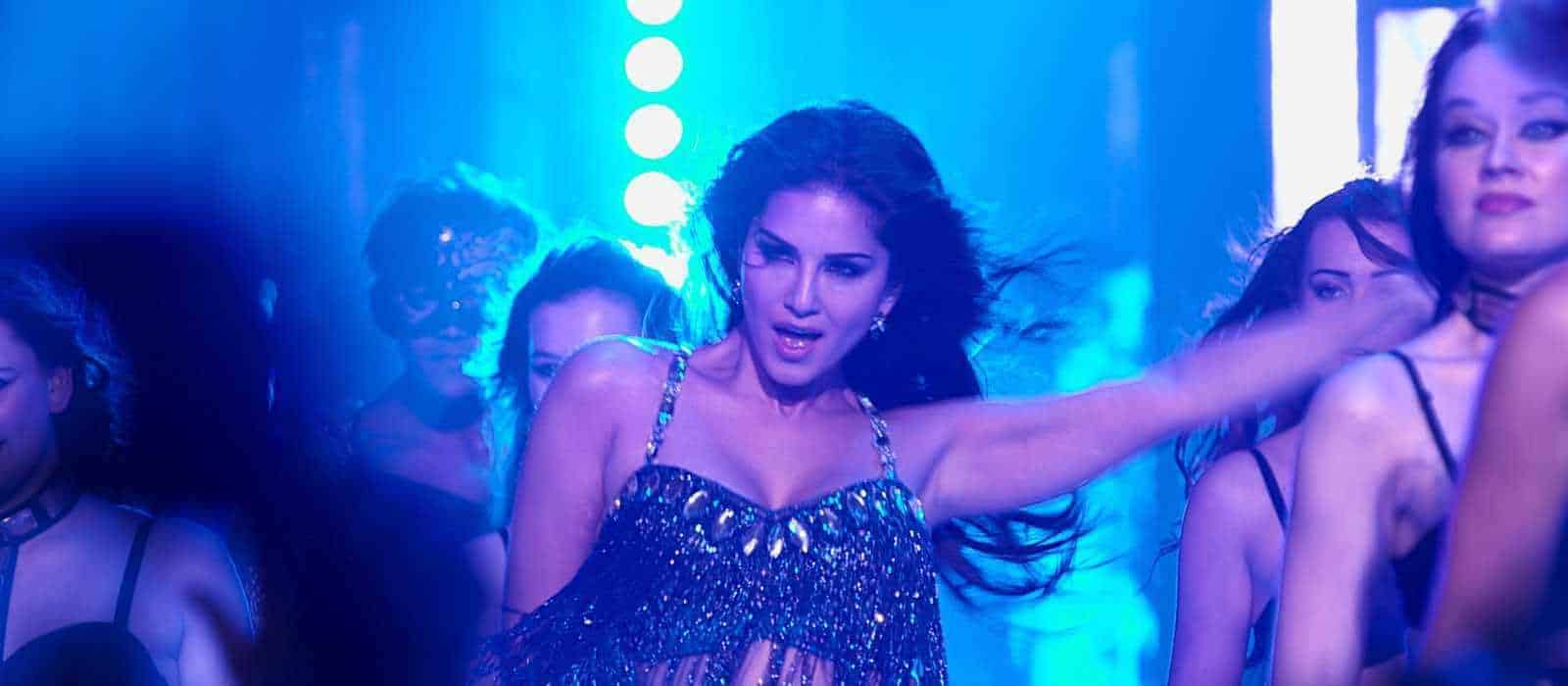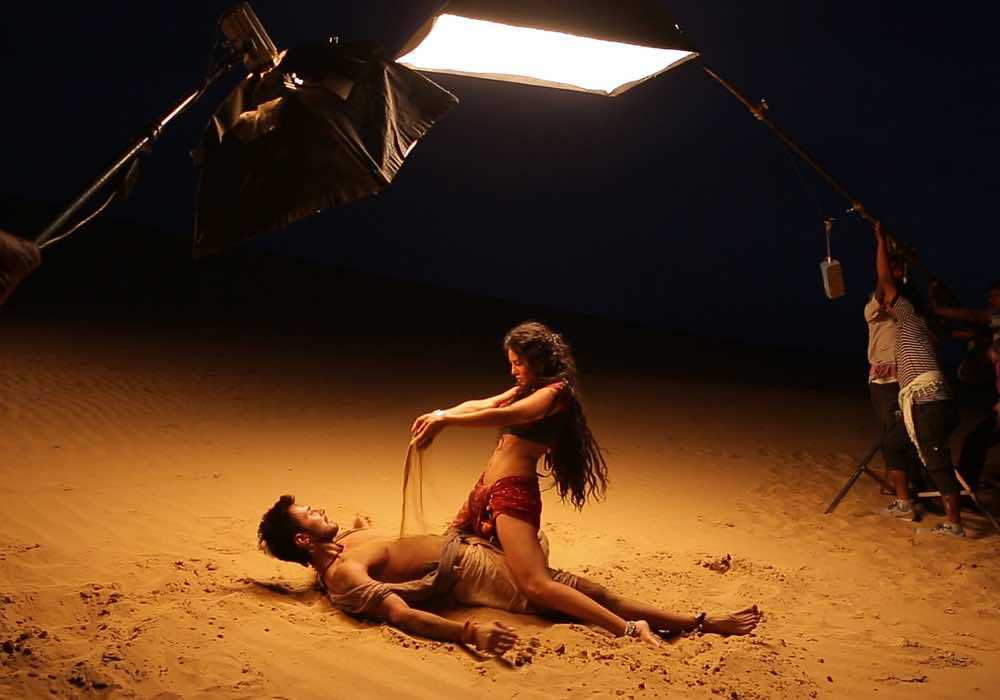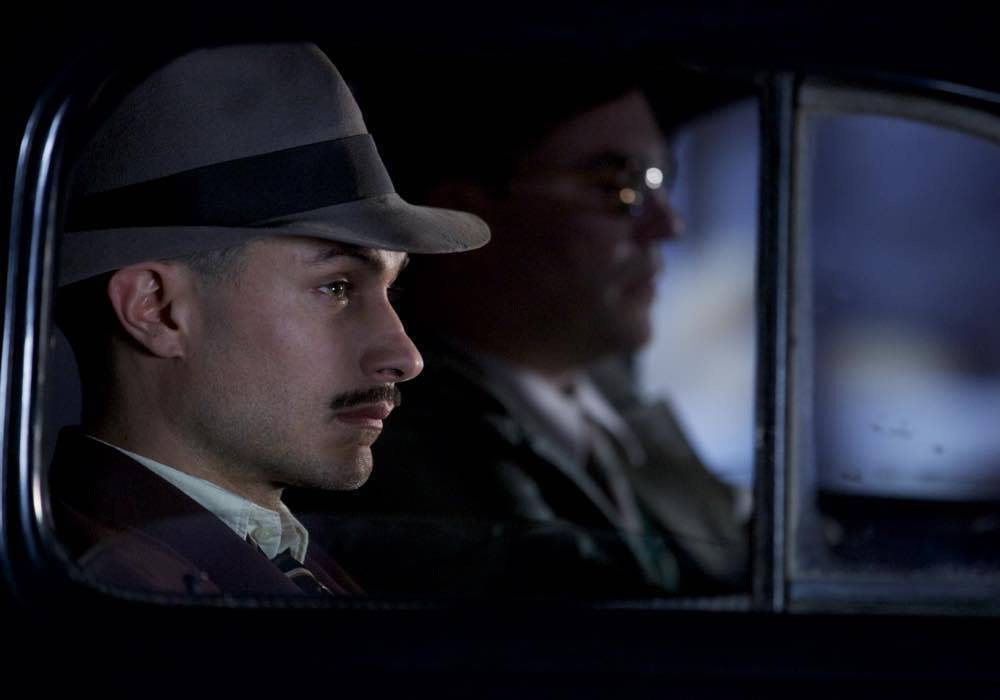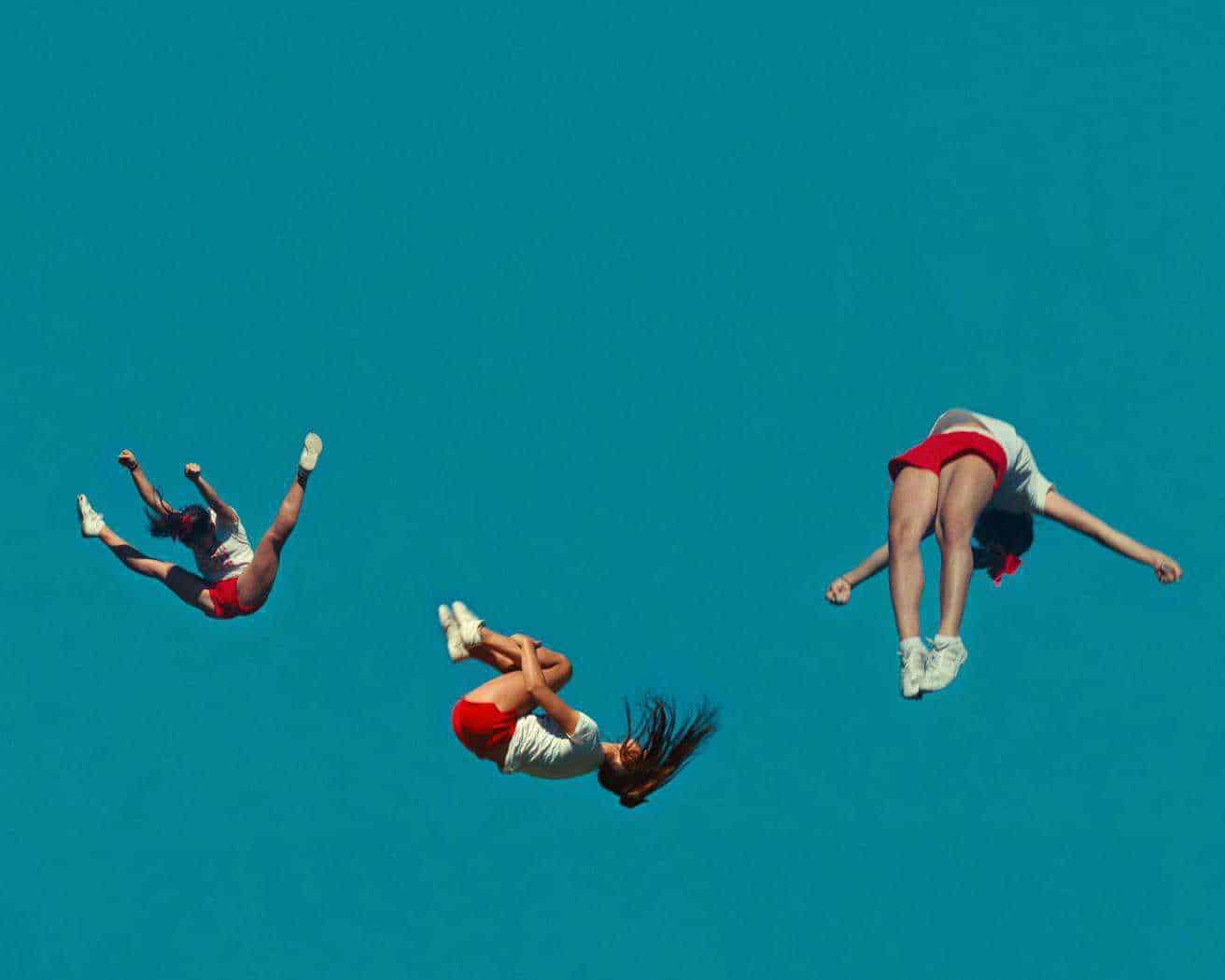Canadian director Dilip Mehta discusses the making of his frank and surprising documentary about porn-star-turned-Bollywood-icon Sunny Leone.

Dilip Mehta’s Mostly Sunny is a frank and surprising documentary about porn-star-turned-Bollywood-icon Sunny Leone’s day to day adventures. Born Karenjit Kaur Vohra, in Sarnia, Ontario, Leone immigrated to California at the age of 13 because her parents wanted her to have a better life. Karenjit stole her brother’s first name, Sunny, to become a Penthouse model and won 2003’s Penthouse Playmate of the year. Sunny became the most highly viewed porn star — and then transformed into a bonafide Bollywood icon. Confronting some of the stereotypes of being a porn star, Mehta subtly compares Bollywood and pornography and examines the lack of sex education within India.
Seventh Row (7R): How did you approach Sunny to make the film?
Dilip Mehta: I was approached by the [Mongrel Media to make the film]. I think it had something to do with my brown skin and my quirky sense of humour. I had read about Sunny Leone and said yes with a great deal of enthusiasm. Then, a tragedy befell India, as a nation: there was a horrible rape case, [so] I said, “No, I don’t want to be a part of [this film]”. The executive producer David Hamilton suggested that I go to Mumbai and meet up with Sunny Leone. I said, “No.” Then, I rethought that, and I said, “This could be a good vehicle to give the flip side of the coin.”
I was to have a 45 minute meeting at the Hyatt Hotel in Mumbai [with Sunny]. It lasted about three hours, 45 minutes. I was totally smitten by her charm. It was disarming. It was forthright, She was projecting the girl next door [image]. Yet here she was a fully fledged former porn star who was on the upswing of her pendulum via Bollywood. That’s remarkable. She [was] not in some dirty alley in LA or Toronto or in Mumbai, shooting up heroin. She was bettering herself. India was embracing her.
[clickToTweet tweet=”‘Whether she did it for money, whether she loved fornication, those are her choices in life.’ ” quote=”Whether she did it for money, whether she loved fornication, those are her choices in life. “]
And we’re talking about a country [where, for example] when Valentine’s day comes along —and granted it’s not an Indian holiday — if someone is necking in the woods, the moral brigade goes out and beats them up. In the midst of this arrives Sunny Leone, who came from a Sikh orthodox family.
Read more: Interview: Maria Jose Cuevas and Olga Breeskin talk Beauties of the Night >>
She was born in a place called Sarnia. I didn’t know what Sarnia was?! I saw her house, and I met her teachers. In some ways, it was remarkable, and in some ways, it broke my heart. She was such a disappointment to the people of Sarnia. The younger generation love her. They dote on her. I love that her name was Karenjit Kaur Vohra: you can’t get more Punjabi than that.
Her husband calls her Karen, which is an Anglicized form of Karenjit. I asked him, “Why [do you call her that?” He replied,] “Sunny is her brand name. My wife’s name is Karen.” She earns a living. It’s her body. We don’t command it. It’s her choices. Whether she did it for money, whether she loved fornication, those are her choices in life. How could I not do a film on Canada’s largest export? She’s unbelievable. She’s literally on the mouths — bad choice of words — of every Indo-Canadian.
7R: There is a stigma that someone who goes into porn came from a broken home, but that wasn’t the case with Sunny. Were there any subjects that were off limits for discussion with Sunny?
Dilip Mehta: That was my only caveat. I said to her, “I’m on board. I want to do the film, but I’ll only do it if there’s access. Otherwise it’s pointless. I’m [only] going to be fed the line that you’ve fed everybody else.”
[clickToTweet tweet=”Rape and misogyny are very important issues that have crept into our feminist psyche.” quote=”Rape and misogyny are very important issues that have crept into our feminist psyche.”]
There are some remarkable things she’s speaking about. She stuck to her promises. Whether she has regrets, I would imagine she does. I’ve known filmmakers that have made biopics or studies of people all [in] good faith, [but] in the end, there’s friction because everybody wants something like a Justin Bieber all goodie goodie gumdrops sort of portrayal of themselves. Instead, I’m presenting something else. It’s complex. Shit comes out, a fist full of shit. I have never known anybody, let alone a former adult star, whose life is not steeped with some kind of controversy, and certainly Sunny’s was.
Read more: Review: League of Exotique Dancers celebrate burlesque stars of the past >>
This film comes at a time when rape and misogyny are very important issues that have crept into our feminist psyche. Frankly, it’s time that it did. It’s been in the offing. It’s coming into its own right now. One thing that has plagued Sunny for many years is whenever there has been a rape case in India, the [Indian] media has [often] pointed to her saying, “You are responsible.” And she’s been saying, “Hey guys, I’m not.” For me, the jury is still out. Is pornography an instigator for rape? I don’t know.

7R: You mentioned at the very beginning of the film that there is a lack of sexual education in India. Wouldn’t that be the instigator of rape? Lack of education about consexual sex?
Dilip Mehta: Hand and glove, absolutely! Because what you’re not aware of is embarrassingly frightening. Sexually, people are so ill-educated. It makes sense, doesn’t it? Having [no] sex education, sure you’re going to look up something on your smart phone, or you’re going to read these smutty books, at some time.
7R: Sunny didn’t talk a lot about sex in her home either.
Dilip Mehta: She, too, is a victim of that, isn’t she?
7R: What comparisons were you trying to make between Bollywood and the porn industry? Bollywood is more soft-core with sensual dancing: the clothes are still on, and there’s no kissing.
Dilip Mehta: The clothes are very scanty. They almost couldn’t be there. [The dancing is more] gyrating. Believe it or not, I do have a few subtle bones in my body, and I was trying to inculcate that. I didn’t want it to be ‘on the nose.’ I didn’t want it to be my voice in the film or the voice of God.
[clickToTweet tweet=”If I do research, I’m going to damage my film, because there’d be preconceptions.” quote=”If I do research, I’m going to damage my film, because there’d be preconceptions.”]
I did minimal research. It was so tempting, but I, finally, at one point, said, “No, if I do research, I’m going to damage my film, because there’d be preconceptions. I would have answered my own questions, [so] what’s the point?” I think it paid off, because she started realizing I didn’t come with answers to the questions I was posing, so she could articulate [them in] her [own] voice. Which goes further to this vicious circle – those are the answers that she’s now damning, saying, “Ah, can we remove that? Oh, could you not have that there? I shouldn’t have said that.” As much as it breaks my heart to break someone else’s heart, at the same time, stand by [your words.]
Read more: Is the Sugar lifestyle worth trying? Director Hannah Donegan on her CBC doc Sugar Sisters >>
7R: How did you figure out how to tell Sunny’s story as a narrative?
Dilip Mehta: It was not planned. I’ve spent a large part of my adult life as a photojournalist for Time Magazine and National Geographic magazine, on the field reacting. I did not want to curtail that. Yes, many, many alternatives presented themselves for telling the narrative. I did not want to be convoluted [or] pontificate. This should be a nice free-fall. I said, “Lead the way. Let it be her voice.”
We tried a number of [ways], and sometimes, everything would just fall into place. In her visit to Sarnia, it was supposed to be over a number of days. Because of her time commitments, it was narrowed down to one day. I said, “Oh Jesus, that’s crazy. We’ve just flown from India.” We picked up [Sunny] from the airport. We went to Sarnia with her husband. And she said, “Listen, I can cope with it.” We just started talking in the car. I said, “I might as well film you in the car, why should it be anywhere else?”
The person you should really ask is Sunny Leone. She probably hates the film.
7R: Has she seen it?
Dilip Mehta: She’s seen cuts of it, [and] there were some unusual requests coming from their camp. At the end of the day, I made some alterations. You know, hey, that’s life. There was no point in saying, “Hey, I’m the editor, and I’m [not] going to cut.” [But] when it became a vanity issue I’d say [to her,] “no!”
Mostly Sunny is now available on iTunes in Canada and the U.S., and it will screen in cinemas in Toronto, Vancouver, Ottawa, Calgary, and Halifax.
Read more: Burlesque expert and producer Dr. Kaitlyn Regher on Tempest Storm >>

